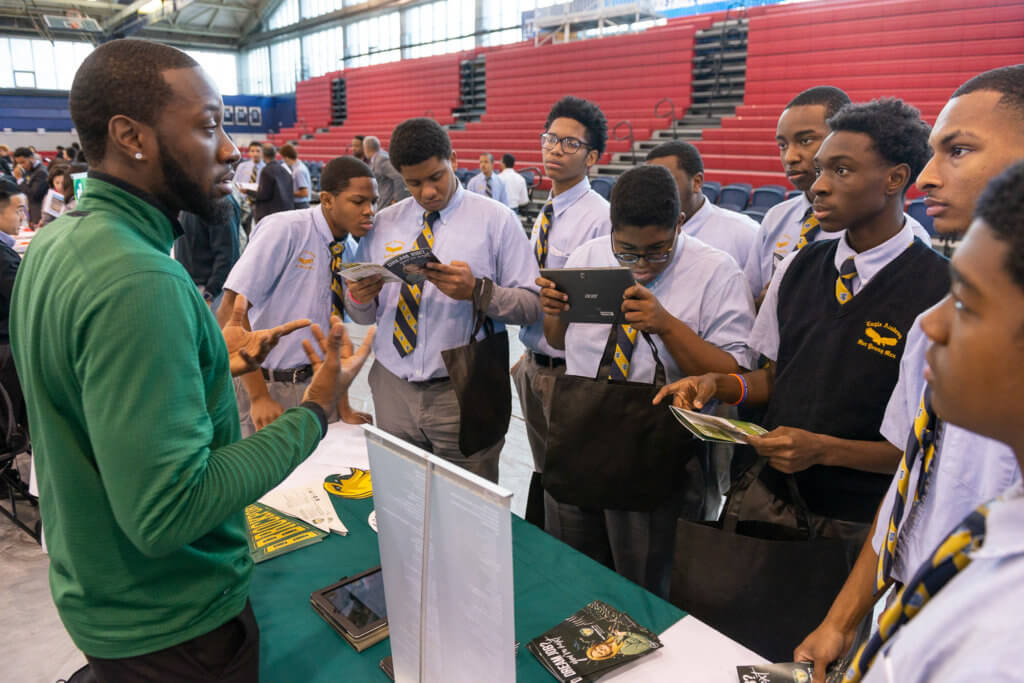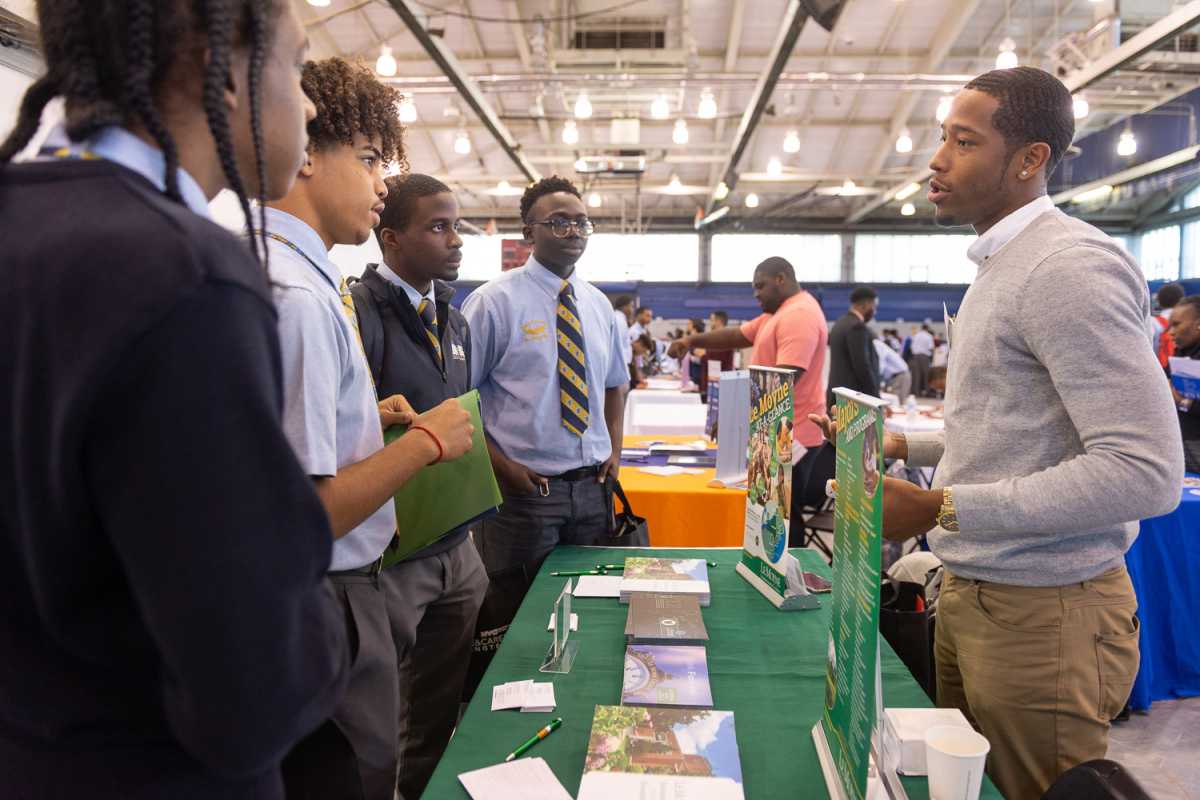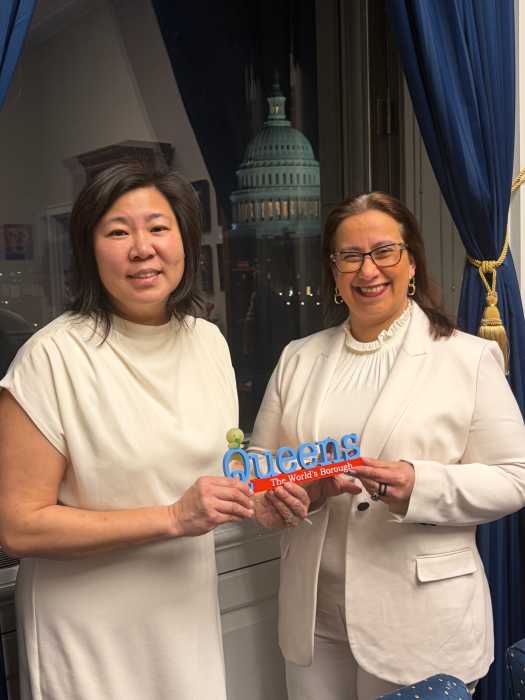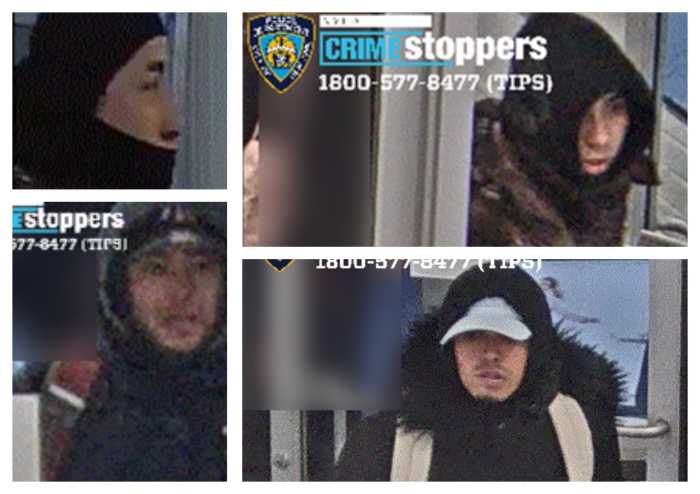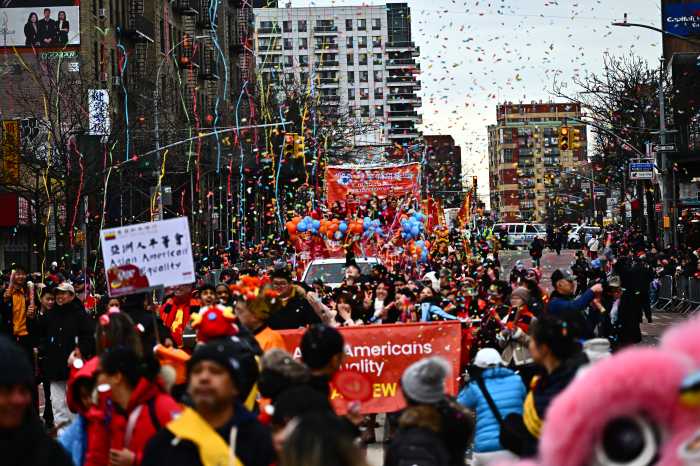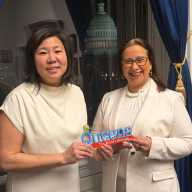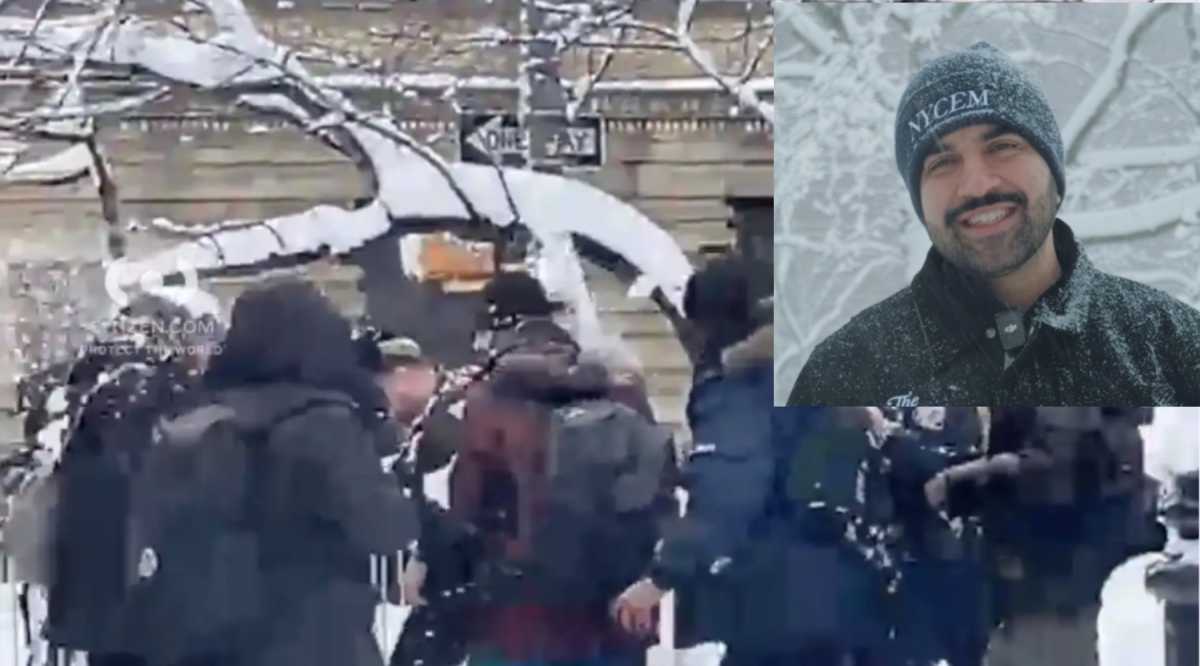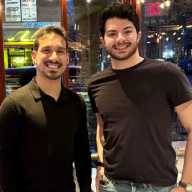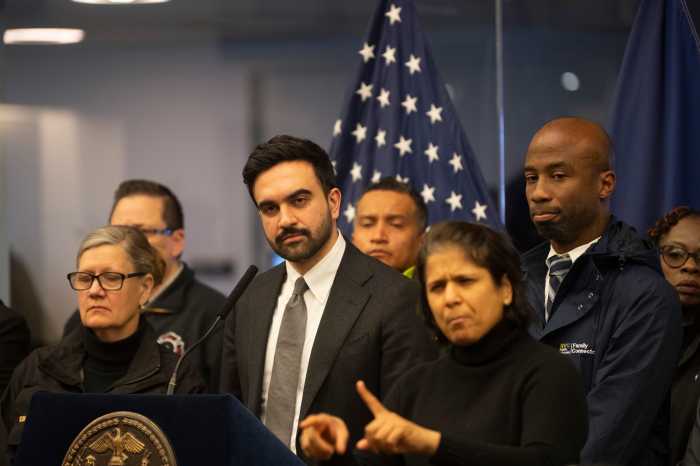More than 3,000 students from The Eagle Academy Foundation and several other New York City high schools filled up the Fitzgerald Gym at Queens College for the fifth annual College and Career Fair for Young Men on Friday.
But this year’s college fair was special.
Eagle Academy’s President and CEO David Banks explained that in previous years, the college fair was only geared toward their own students, but this year they collaborated with the Department of Education (DOE) to invite public schools from across New York City to participate.
“There are lots of college fairs, but today is very unique because this one is the only all-male college fair in the country. Nobody else is doing this,” Banks told QNS.
In the end, about 2,400 students from general DOE high schools and 600 students from Eagle Academies attended the event.
Representatives from more than 80 colleges and programs — including colleges in New York, New Jersey, Connecticut, Maryland, Massachusetts, Virginia and Florida — invited the high school juniors, seniors and even sophomores to ask any and all questions they might have about pursuing a degree.
The Eagle Academy is an all-male, nonprofit with a network of sixth- through 12th-grade college preparatory schools in each of New York City’s five boroughs and Newark, N.J.
Temitope Ajirotutu has attended Eagle Academy’s southeast Queens school for almost seven years and the 17-year-old said that the fair was a “representation of students living the dream and going to college to strive to be greater than some parents who weren’t able to go.”
“In my wonderful future, I want to get to the NFL, but of course I have a backup plan — I want to be a social worker and just help people,” Ajirotutu added.
Isaiah Ware, another senior from Eagle’s southeast Queens school, said that as a resident of South Jamaica, he “often feels as though the system is set against” him and has watched relatives and close neighbors “constantly deal with systemic oppression.”
But as a longtime member of the Eagle Academy, Ware said he realized that it is “possible to rise above your circumstances,” and credits the academy’s educators for pushing them beyond their comfort zones to reach new limits.
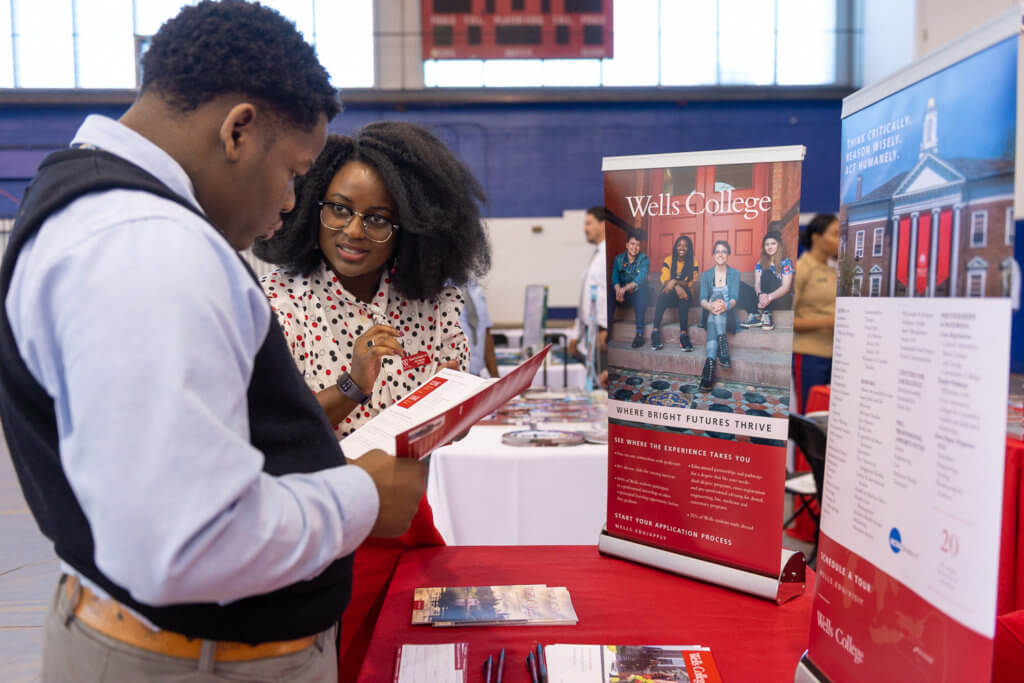
“Since the college experience and life after are all about networking, Eagle has unintentionally taught me one of the major keys to success,” Ware said. “At the college fair, I was reminded of the importance of setting high goals, regardless of whether it may seem attainable or not. One of the college consultants emphasized that I shouldn’t rule out Ivy League schools, whether or not I knew anyone who’d previously attended one.”
Although the 17-year-old plans on finding a career path while in college, the one thing he’s certain about is that he wants “to be living proof that you don’t have to be a product of your environment.”
According to a 2019 report from the American Council on Education, black male students pursuing bachelor’s degrees were the most likely among any demographic group to drop out after their freshman year.
Banks, a Brooklyn and Queens native, said that part of Eagle Academy’s mission is to encourage their students, who are mainly young men of color, to see college as a real possibility.
“This is a demographic that every college campus across the nation is saying, ‘We want more young men of color, we just don’t know where to find them.’ Well, they can find them when they come to a place like this,” he said.
Founded in 2004, the Eagle Academy was created in response to a Columbia University study that found that 75 percent of New York state’s prison population was coming from seven neighborhoods in New York City, according to Banks.
Today, the academy has an 84 percent high school graduation rate with 98 percent of their students getting accepted to college.
“Far too many young men don’t even apply to college because they don’t even think it’s a possibility,” Banks said. “The reality is far too many of them know people who’ve gone to prison and don’t know enough people who’ve gone to college. That’s what we’re trying to change: that narrative. That’s the reason why we do the work that we do every day.”
